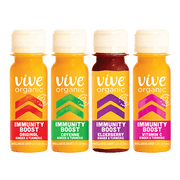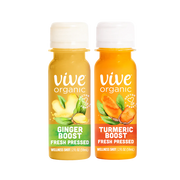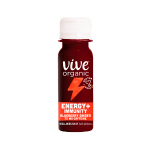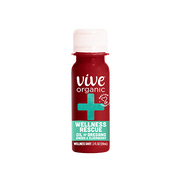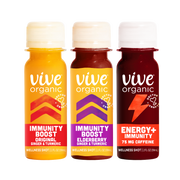Vitamin B is one of the most well-known vitamins, and most people understand that the B vitamins are essential for their health. But understanding what the B vitamins do for the body, along with the different types of B vitamins that are essential for your dietary intake, can be examined here.
Always look to speak with your healthcare professional before you make any decisions to start a vitamin supplement, to ensure it supports your health and wellbeing.
B Vitamins and the Basics
B vitamins are an essential part of a healthy diet and are involved in numerous processes in your body, including the metabolic process. Collectively, this group of vitamins is called the B-complex, which includes 8 individual B vitamins: B1 (Thiamine), B2 (Riboflavin), B3 (Niacin), B5 (Pantothenic Acid), B6 (Pyridoxine), B7 (Biotin), B9 (Folate), and B12 (Cobalamin).3
All of the B vitamins are water-soluble, which means that they dissolve in water and your body uses what it needs and does not store them. Rather, any excess or amount that is not utilized will be naturally excreted by your body.
And since the B vitamins are not stored, you need to replace them daily through your diet.1,3 Also, our bodies cannot produce B vitamins on their own, and therefore, assessing your dietary intake is important. Because our nutritional intake may not always be ideal, it is important to keep in mind that the goal is to incorporate a variety of foods from each of the food groups to support a variety of nutrients, including vitamins and minerals. Some foods are fortified to provide B vitamins and other necessary nutrients.1,2
Some people may need to supplement their diet with B vitamins and therefore should discuss with their healthcare provider (HCP).
Now that you have a good handle on the “B” basics, let’s take a run through some of the functions of these vitamins.
Vitamin B Function and Food Sources
Metabolic Support
These vitamins work to convert the carbohydrates obtained from the food you eat into usable energy.1 That is why you may often hear most people refer to B vitamins as providing ‘energy.’ They are also involved in the metabolism of fats and proteins.
Red Blood Cell (RBC) Production
The production of red blood cells (RBCs) is crucial for ensuring that the body receives the necessary oxygen for its functions. Certain B vitamins play a significant role in the production of RBCs, which transport oxygen from the lungs to various tissues and organs throughout the body. Adequate oxygen supply is essential for the proper functioning of all body parts, supporting energy levels and overall health. The role of B vitamins in this process is vital.1,2
Coenzymes
B vitamins act as coenzymes, which are small compounds that help enzymes with chemical reactions. Some B vitamins assist in several enzymatic processes that support major functions within the brain and nervous system.1
Meet the B Vitamins
Here is a close-up on the eight B vitamins, each with its special job. Learning about these can help you understand how they keep you healthy.3,4
Thiamine (Vitamin B1)
Thiamin is essential for a healthy nervous system. It also helps your body convert energy from the food you eat by turning it into adenosine triphosphate (ATP), which is the energy used by your cells. Thiamine supports adequate nerve cell function and is important for the growth, development, and function of the cells in your body.5
Food sources: Whole grains and fortified bread, cereal, pasta, rice, meat (especially pork), fish, black beans and soybeans, seeds and nuts.5
Riboflavin (Vitamin B2)
Riboflavin is another B vitamin that is involved in the energy production process. These B vitamins are also important for the growth, development, and function of the cells in your body.6
Food sources: Fortified cereals, bread, and grain products, eggs, organ meats, lean meats, low-fat milk, mushrooms, and spinach.6
Niacin (Vitamin B3)
Vitamin B3, or niacin, aids in transferring energy from food into ATP for our cells. Additionally, this vitamin helps with the creation and repair of our DNA. It’s pretty amazing, isn’t it? Also, niacin helps support nerve function and is a coenzyme that is used in numerous bodily processes.3,4,8
Food sources: Yeast extract, fish, beef, pork, chicken, eggs, legumes, fortified grains, like breakfast cereals and flour.3,8
Pantothenic Acid (Vitamin B5)
Pantothenic acid helps with energy production and fat metabolism. It also supports hormone production.
Food sources: Organ meats, fish, beef, pork, chicken, eggs, legumes, whole grains, and vegetables like mushrooms, avocados, and sweet potatoes.3,8
Vitamin B6 (Pyridoxine)
Vitamin B6 is important for over 100 enzyme reactions that help with metabolism. It also plays a role in brain growth during pregnancy and infancy. Additionally, vitamin B6 supports the immune system and helps to maintain proper levels of the amino acid homocysteine.3,8
Food sources: Poultry, fish, and organ meats, potatoes and other starchy vegetables, and most fruit other than citrus.8
Biotin (Vitamin B7)
Biotin acts as a coenzyme, similar to other B vitamins, and is important in many basic metabolic processes. Also, biotin is involved in fatty acid synthesis, glucose formation, and amino acid metabolism. And biotin is well known for its support of healthy skin, nails, and hair.3,9
Food sources: Biotin is found in animal foods, including organ meats, fish, meat, egg yolk, and dairy products. While plant sources include legumes, leafy greens, cauliflower, mushrooms, and nuts, your gut bacteria also produce some biotin.3,9
Folate (Vitamin B9)
Folate helps to make DNA and other genetic material. It also helps cells divide. It is critical for the proper formation of the neural tube in early pregnancy. A form of folate, called folic acid, is used in fortified foods and most dietary supplements. Some dietary supplements also contain folate in the 5-MTHF (also known as L-5-MTHF, 5-methyl-folate, L-methylfolate, and methylfolate), which is the activated form of B9.4,10
Food sources: Cooked spinach, broccoli, asparagus, black-eyed peas, fortified foods like white rice, cereal, and broccoli.4,10
Vitamin B12 (Cobalamin)
Vitamin B12 is essential for the development, myelination, and function of the central nervous system. It is also essential for the formation of healthy red blood cells and DNA synthesis.11
Food sources: Fish, meat, poultry, eggs, milk, and other dairy products contain vitamin B12. Some breakfast cereals, nutritional yeasts, and other food products are fortified with vitamin B12.11
Key Takeaways
The B vitamins (B complex) are water-soluble vitamins, which means they are dissolved in water and are not stored like fat-soluble vitamins. It is therefore important to eat a variety of foods from all of the food groups so that our intake ensures a balance of all the nutrients, including the B vitamins, which are essential and necessary to be obtained from our diets.
Some populations, as well as certain health conditions, may warrant higher needs for some of the B vitamins. For the general population, it is wise to refer to the Recommended Daily Allowances (RDAs) as guidelines for vitamin B intake. It is also recommended to speak with your HCP as warranted if you have any medical or nutritional concerns and may be looking to supplement your diet with dietary supplements.
Disclaimer: This blog contains promotional content about our products. The information provided in this blog is for educational and informational purposes only and should not be construed as medical advice. While the nutritional information and health tips shared here are based on published studies and expert insights, they should not replace advice and treatment from a healthcare professional. Always consult a qualified healthcare provider with any questions you may have regarding a medical condition or health objectives.
References
- Hanna, Mary et al. “B Vitamins: Functions and Uses in Medicine.” The Permanente journal vol. 26,2 (2022): 89-97. doi:10.7812/TPP/21.204. https://pmc.ncbi.nlm.nih.gov/articles/PMC9662251/#s1.
- Eldridge, Lynne. “Hemoglobin Importance within the Body.” Verywell Health, Verywell Health, 4 May 2023, www.verywellhealth.com/importance-of-hemoglobin-2249107. Accessed 22 April 2025.
- Atli Arnarson, PhD. “The Water-Soluble Vitamins: C and B Complex.” Healthline, Healthline Media, 3 Nov. 2017, www.healthline.com/nutrition/water-soluble-vitamins#b1. Accessed 22 April 2025.
- “A Close Look at All the B Vitamins.” Cleveland Clinic, 2024, health.clevelandclinic.org/b-vitamin-benefits. https://health.clevelandclinic.org/b-vitamin-benefits. Accessed 22 April 2025.
- National Institutes of Health. “Office of Dietary Supplements - Thiamin.” Nih.gov, 2023, ods.od.nih.gov/factsheets/Thiamin-HealthProfessional/. https://ods.od.nih.gov/factsheets/Thiamin-HealthProfessional/. Accessed 22 April 2025.
- “Office of Dietary Supplements - Riboflavin.” Nih.gov, 2025, ods.od.nih.gov/factsheets/Riboflavin-Consumer/#h11. https://ods.od.nih.gov/factsheets/Riboflavin-Consumer/#h11. Accessed 22 April 2025.
- National Institute of Health. “Office of Dietary Supplements - Niacin.” Nih.gov, 2017, ods.od.nih.gov/factsheets/Niacin-Consumer/. https://ods.od.nih.gov/factsheets/Niacin-Consumer/ Accessed 22 April 2025.
- National Institutes of Health. “Office of Dietary Supplements - Vitamin B6.” Nih.gov, 2017, ods.od.nih.gov/factsheets/VitaminB6-Consumer/. https://ods.od.nih.gov/factsheets/PantothenicAcid-Consumer/. Accessed 22 April 2025.
- National Institute of Health. “Office of Dietary Supplements - Biotin.” Nih.gov, 2017, ods.od.nih.gov/factsheets/Biotin-HealthProfessional/. https://ods.od.nih.gov/factsheets/Biotin-HealthProfessional/. Accessed 22 April 2025.
- National Institutes of Health. “Office of Dietary Supplements - Folate.” Nih.gov, National Institutes of Health, 30 Nov. 2022, ods.od.nih.gov/factsheets/Folate-HealthProfessional/. https://ods.od.nih.gov/factsheets/Folate-HealthProfessional/. Accessed 22 April 2025.
- National Institutes of Health. “Office of Dietary Supplements - Vitamin B12.” Nih.gov, National Institutes of Health, 2024, ods.od.nih.gov/factsheets/VitaminB12-HealthProfessional/. https://ods.od.nih.gov/factsheets/VitaminB12-HealthProfessional/. Accessed 22 April 2025.
